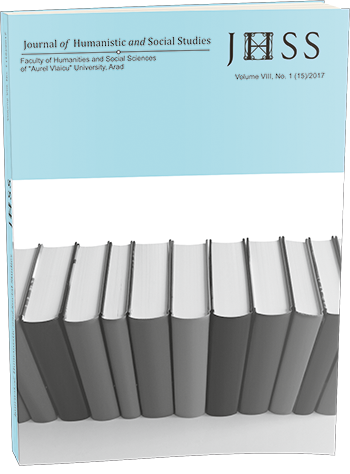Implicit Meanings in Fictional Conflict
Discourses: Insights from two Nigerian Novels
Implicit Meanings in Fictional Conflict
Discourses: Insights from two Nigerian Novels
Author(s): Niyi Osunbade, Chuka Fred OnonyeSubject(s): Language and Literature Studies
Published by: Editura Universității Aurel Vlaicu
Keywords: Adichie; conflict discourses; implicit meanings; thematised conflict; conflict types; novels
Summary/Abstract: Research on Chimamanda Adichie’s literary works has been devoted to the investigation of the thematic, stylistic, lexico-semantic, discoursal and pragmatic features of her texts. While the pragmatic studies of the texts have examined implicit and explicit meanings, including explicit thematisation of conflicts, in them, very little attention has been paid to the contextual examination of implicit contents of conflict discourse in her texts. This study is therefore a pragmatic exploration of implicit meanings in conflict discourses in Adichie’s novels. It identifies the types of conflict that emerge in the texts and determines how they implicitly facilitate access to conflict-related thematic orientation of Adichie. All the conflict-motivated discourses in the two novels of Adichie, Purple Hibiscus (PH) and Half of a Yellow Sun (HYS), *constituted the data for the study. These were analysed using insights from Gricean theory of implicature, which served as the theoretical framework for the study. Theresults indicate that pragmatic inference contributes to the realisation of implicit meanings in three broad types of conflict in the data, namely, domestic conflict,religious conflict and ethnic conflict, especially with the engagement of figurative expressions with additional meaning and non-figurative expressions with additional meaning. Figurative expressions (non-literal language usage in the data) manifest as figure of speech, especially metaphor, and proverbial expression, flouting the maxim of manner to give off implicitly thematised conflicts, namely, resistance against domestic violence, conflict of religious faith/belief, and sentiment of tribal differences. Non-figurative expressions(literal uses of language) however go with additional meanings, flouting the maxim of quantity to implicitly thematise such conflicts as clash in domestic lifestyle, conflict of religious belief, resistance against religious imposition and tribal clash-motivated inhumanity. The link between conflict types and implicit meanings in Adichie’s novels obviously aids a pragmatic understanding of conflict-related issues in the texts. It therefore demonstrates the capability of Gricean pragmatics in the realisation of implicit meanings in conflict discourses in novels.
Journal: Journal of Humanistic and Social Studies
- Issue Year: 8/2017
- Issue No: 1
- Page Range: 39-54
- Page Count: 16
- Language: English

